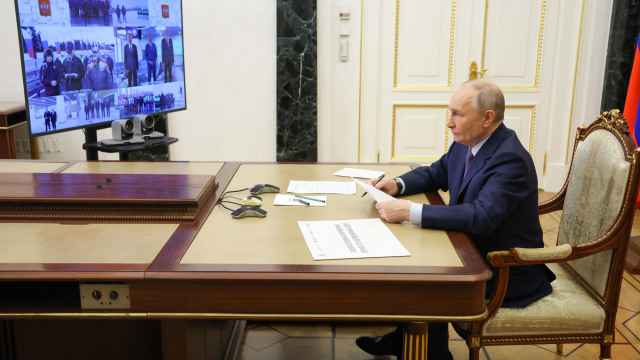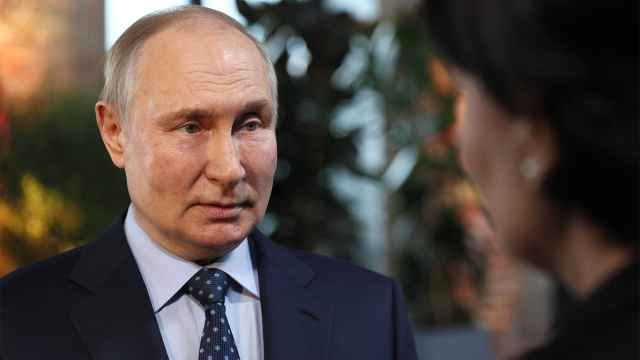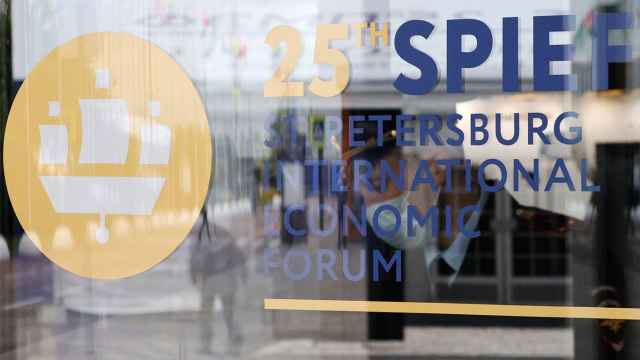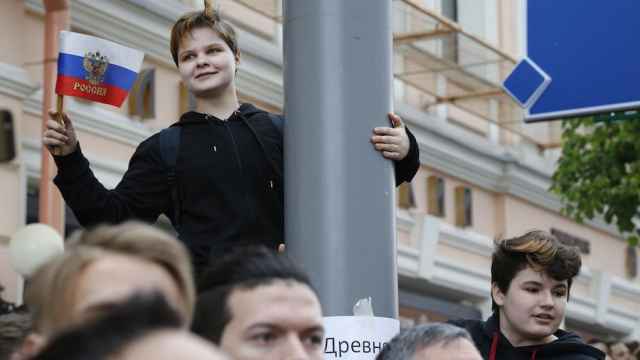Updated with Peskov's comments.
Mobile internet access will be disrupted at the St. Petersburg International Economic Forum (SPIEF) ahead of President Vladimir Putin’s keynote speech, organizers said Friday, just hours before the Russian leader is expected to arrive at the event grounds.
“Internet access for mobile devices will be temporarily unavailable at the SPIEF venue... due to technical work," the state-run Roscongress Foundation said.
Instead, it advised participants and guests to use a dedicated Wi-Fi network.
Putin is scheduled to address the forum’s plenary session alongside his Algerian counterpart on Friday afternoon local time.
According to independent media reports, citing an anonymous telecom employee and a SPIEF participant familiar with the event's organization, the mobile web shutdown is a preventative measure against a possible drone attack on Putin.
Journalist Farida Rustamova noted that there were similar disruptions during the Moscow-led Eurasian Economic Union summit in the southern resort city of Sochi, which affected ride-hailing apps, mobile phone service and bank cards.
The Kremlin appeared to confirm these reports on Friday when asked about security measures at this year's SPIEF.
"Of course, both safety and digital security measures are being strengthed quite significantly, you could even say it's unprecedented," Kremlin spokesperson Dmitry Peskov said.
"The enemy acts brazenly and doesn't miss an opportunity to inflict damage."
Russian authorities have become increasingly concerned about drone threats following a thwarted May 3 strike on the Kremlin, which they called an assassination attempt by Kyiv on the Russian president.
Ukraine denied having a role in the strike, as well as in a number of other drone attacks on Russian territory in recent months.
The Russian authorities have ramped up GPS suppression measures in at least 15 regions encircling Moscow following the drone attacks.
A Message from The Moscow Times:
Dear readers,
We are facing unprecedented challenges. Russia's Prosecutor General's Office has designated The Moscow Times as an "undesirable" organization, criminalizing our work and putting our staff at risk of prosecution. This follows our earlier unjust labeling as a "foreign agent."
These actions are direct attempts to silence independent journalism in Russia. The authorities claim our work "discredits the decisions of the Russian leadership." We see things differently: we strive to provide accurate, unbiased reporting on Russia.
We, the journalists of The Moscow Times, refuse to be silenced. But to continue our work, we need your help.
Your support, no matter how small, makes a world of difference. If you can, please support us monthly starting from just $2. It's quick to set up, and every contribution makes a significant impact.
By supporting The Moscow Times, you're defending open, independent journalism in the face of repression. Thank you for standing with us.
Remind me later.






